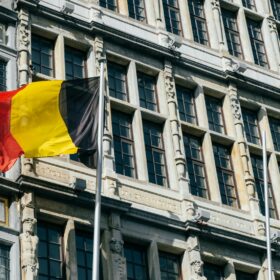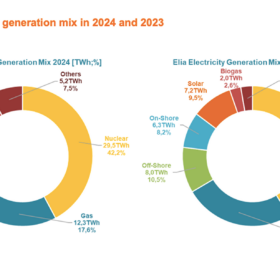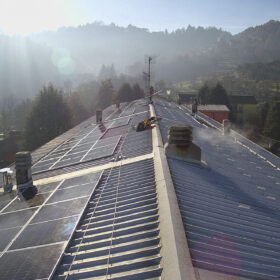Fire damages PV system on school in Belgium
A fire damaged around 100 of the 160 solar panels on the roof of Don Bosco school in Halle, Belgium. Firefighters quickly extinguished the blaze, and no injuries were reported.
Mandatory switch to smart meters on track in Flanders
Belgian grid operator Fluvius says it is on course to finish installing smart meters in all solar-powered homes in the Belgian region of Flanders by the end of this year.
Belgian company challenges 800 W limit for plug-in solar panels in Flanders
Belgian smart energy firm Innovoltus is challenging a new rule from the Flanders energy agency in Belgium capping plug-in solar panels at 800 W per meter, arguing the region lacks authority to impose the limit. The move comes as the country begins sales of plug-in solar panels and home batteries ahead of an April 17 connection date.
How to identify interruption of ribbons in solar modules
Scientists in Spain have investigated the total or partial interruptions of ribbons that connect solar cells in modules and have proposed a classification based on their type and location.
Belgium’s Wallonia region added 92 MW of solar in 2024
The rate of solar installations slowed in the Belgian region of Wallonia last year, as government incentives for residential solar came to an end. Brussels-based renewable energy federation Edora says deployment will need to accelerate across all market segments if the region is to meet its 2030 solar targets.
Flanders adds over 646 MW of solar in 2024
Belgium’s Flanders region installed at least 646 MW of solar in 2024, bringing total installed capacity to nearly 7 GW. The region marked its 1 millionth solar panel installation this month, driven by industrial rooftop projects.
InterSolution showcases solar innovations in Benelux market
More than 100 companies from eight different countries exhibited at InterSolution 2025, the largest solar energy trade fair for Belgium, the Netherlands and Luxembourg.
European consortium reuses second life PV panels, EV batteries in agrivoltaics, plug-in solar, low-budget projects
A European team is developing technologies and processes to show how end of life PV panels and electric vehicle (EV) batteries can be used in three distributed energy market segments: agrivoltaics, plug-in PV for households, and low-budget solutions. It will also demonstrate efficient recycling processes for critical raw materials recovered from panels and batteries that cannot be reused.
Solar accounts for 11.9% of Belgium’s 2024 electricity mix
Belgian electricity system operator Elia says solar was the leading source of renewable energy in Belgium’s electricity mix in 2024. Total solar energy generation in the country reached new highs last year, totaling 8.3 TWh.
Energy communities should be supported via network tariff adjustments
New research from Belgium shows that energy-sharing alone is not attractive enough for citizens and businesses willing adopt solar through an energy community. According to the study, policy support for energy communities should take the form of network tariff adjustments reflecting the community’s measurable benefits for the distribution grid.










